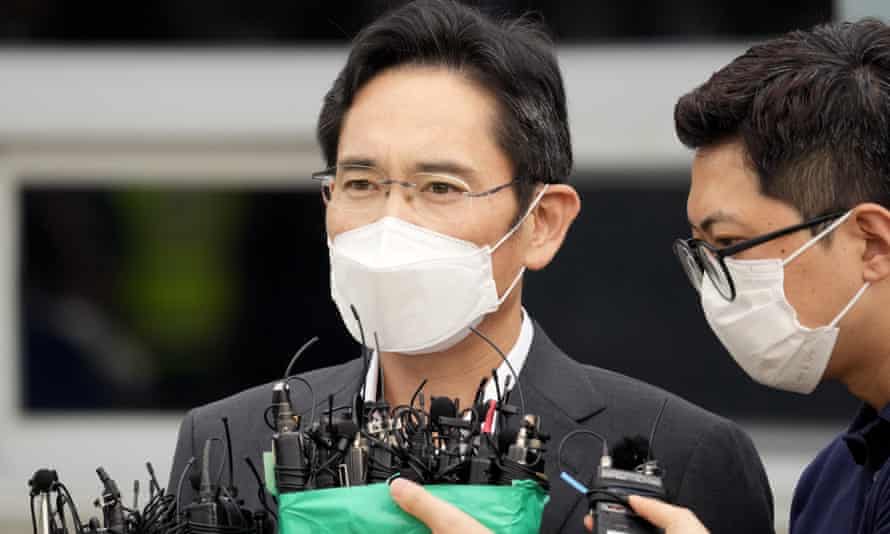The billionaire boss of South Korea’s Samsung empire has been released from prison after serving 18 months of a 30-month sentence for bribing the former president of South Korea Park Geun-hye.
Lee Jae-yong, Samsung’s vice-chair and de facto leader, apologised to the country for his actions upon his release from Seoul detention centre. “I’ve caused much concern for the people. I deeply apologise,” Lee, 53, told reporters on Friday. “I am listening to the concerns, criticisms, worries and high expectations for me. I will work hard.”
Lee, who had run Samsung since his father, Lee Kun-hee, was admitted to hospital after a heart attack in 2014, is keen to get back to work and guide the company’s next steps. But under South Korean law he could be banned from working for the firm for five years. He will need to seek special permission from the justice minister to return to work, but this is expected to be granted after appeals from the South Korean business community.
The justice minister, Park Beom-kye, said earlier this week that he had taken into account “the nation’s economic situation due to the prolonged Covid pandemic as well as the global economic environment” in his decision to release Lee.
In a statement, the office of the South Korean president, Moon Jae-in, said: “We are well aware that there are supporting and opposing views on vice-chairman [Lee Jae-yong’s] parole. The views of the people who are opposed are also right.
“On the other hand, there have been many people who called for his parole in this severe crisis, hoping that he will help the country with respect to semiconductors and vaccines.”
He was among 810 other prisoners granted parole on Liberation Day, which marks the liberation of Korea from Japanese imperial rule in 1945.
The scandal, which rocked South Korean society, was sparked by Lee’s attempts to persuade the government to ease the succession of the Samsung empire from his father, who died last year.
The court ruled that Lee “actively provided bribes and implicitly asked the president to use her power to help his smooth succession”.
It added: “It is very unfortunate that Samsung, the country’s top company and proud global innovator, is repeatedly involved in crimes whenever there is a change in political power.”
Earlier this year, the family said they would pay more than 12tn won (£7.8bn) in inheritance tax and donate Lee Kun-hee’s collection of more than 23,000 artworks – including pieces by Salvador Dalí, Pablo Picasso and Jean-Michel Basquiat, and one of Claude Monet’s water lilies paintings – to South Korean museums.





